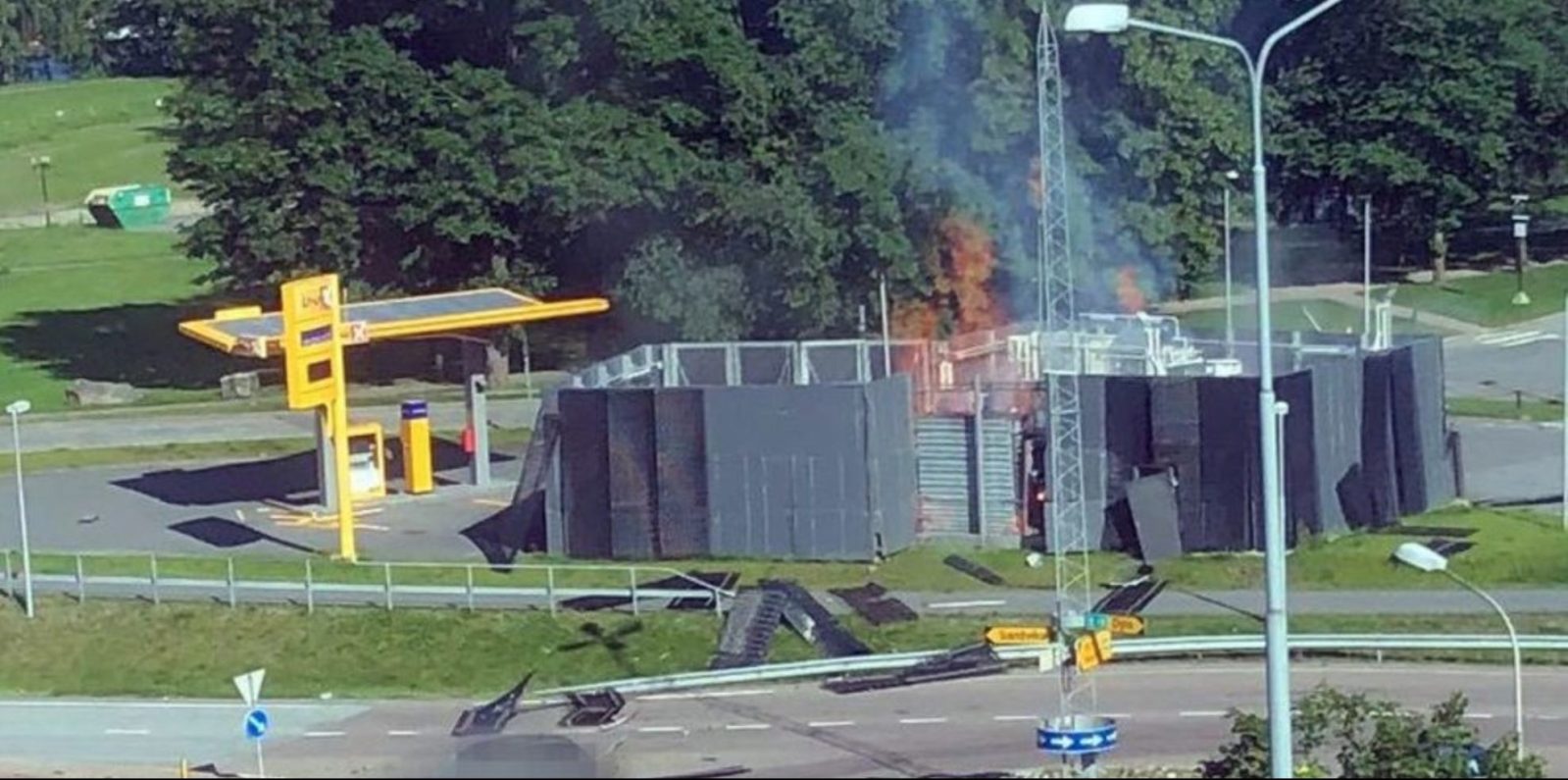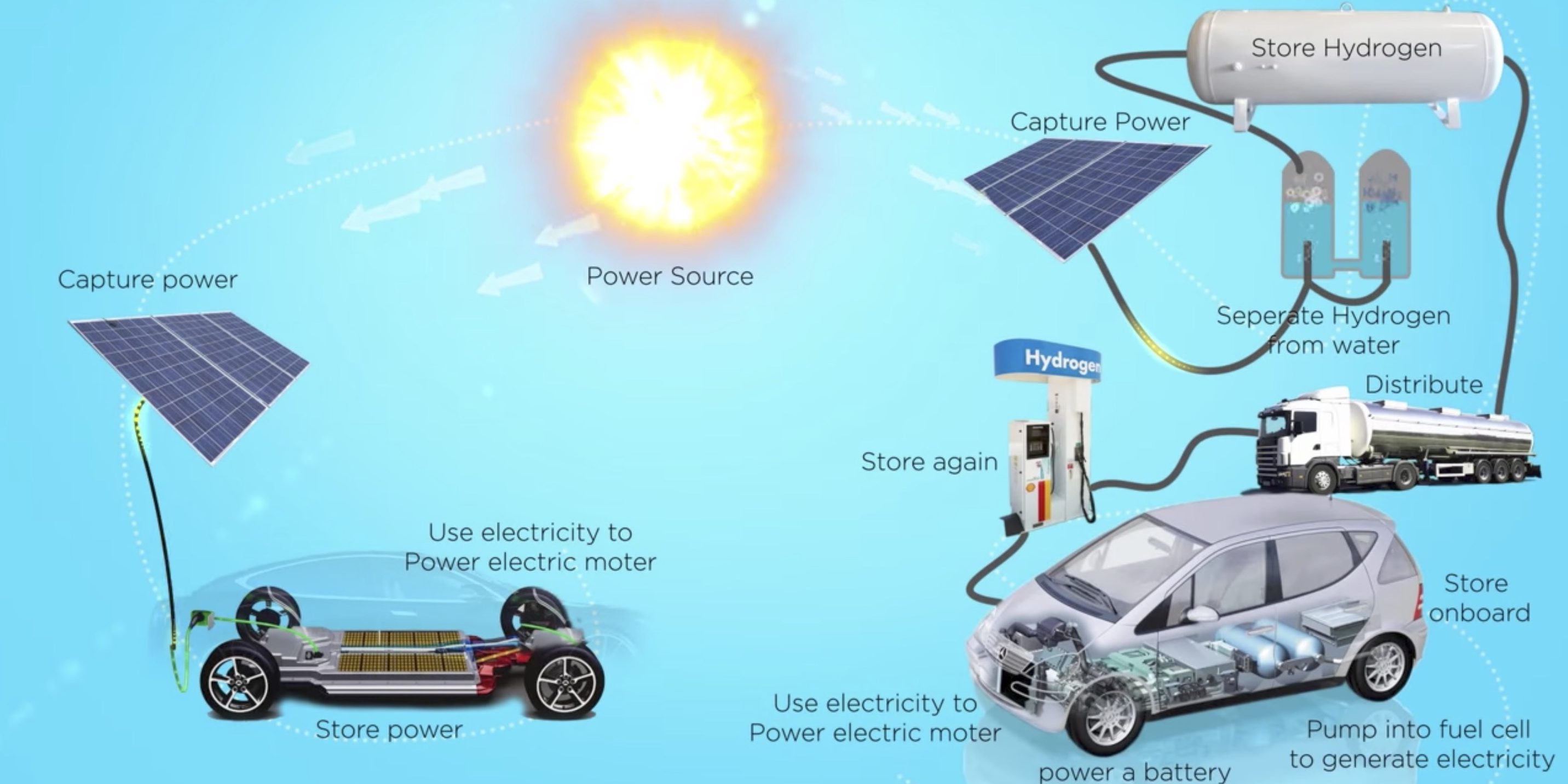International News
See other International News Articles
Title: Hydrogen station explodes, Toyota halts sales of fuel cell cars, is this the end?
Source:
Electrek
URL Source: https://electrek.co/2019/06/11/hydr ... ta-halts-sales-fuel-cell-cars/
Published: Jun 13, 2019
Author: Fred Lambert
Post Date: 2019-06-13 15:27:30 by Hondo68
Keywords: Hindenburg 1937
Views: 2430
Comments: 4
A hydrogen refueling station exploded in Norway on Monday and the company operating the station has suspended operation at its other locations following the explosion. Now, Toyota and Hyundai are both halting sales of fuel cell vehicles in the country. Does this spell the end of fuel cell hydrogen vehicles as a “zero-emission” alternative? The Uno-X hydrogen station in Sandvika in Bærum exploded on Monday and resulted in two injuries in a nearby non-fuel cell vehicle. According to the police, the explosion was strong enough that it activated the airbags in the vehicle without any impact. The cause of the explosion is currently unknown and the rest of the refueling network is being shut down. Jon André Løkke, CEO of Nel Hydrogen, the company operating those hydrogen refueling stations, commented: “It is too early to speculate on the cause and what has gone wrong. Our top priority is the safe operation of the stations we have delivered. As a precaution, we have temporarily put ten other stations in standby mode in anticipation of more information.” With the refueling network crippled, Toyota and Hyundai have announced that they are temporarily halting sales of fuel cell vehicles. Toyota Norway manager Espen Olsen said (via TU): “We don’t know exactly what happened on the Uno-X drive yet, so we don’t want to speculate. But we stop the sale until we have learned what has happened, and for practical reasons, since it is not possible to fill fuel now.” They will be offering loaner vehicles to customers who currently own the Mirai since they won’t be able to refuel. Toyota insists that this is not changing their view on fuel cell hydrogen vehicles: “This does not change our view of hydrogen, and it is important for us to point out that hydrogen cars are at least as safe as ordinary cars. The hydrogen tanks themselves are so robust that you can shoot them with a gun without knocking them.” Hyundai, the only other automaker delivering fuel cell vehicles in Norway, has made similar announcements and statements. I’ve always been really critical of the hydrogen fuel cell powertrain as an alternative to battery-electric vehicles. This isn’t the first incident of Hydrogen detonating (and no that’s not a link to the Hindenburg). My concerns were always more about the efficiency of the powertrain and the entire supply chain versus the simplicity and efficiency of electricity and battery-electric vehicles, but we also can’t avoid the safety concerns of carrying and storing something like hydrogen. This is a big blow to the technology that a few automakers, mainly Toyota and Hyundai, have been holding to as their alternative to making all-electric vehicles. Despite battery-electric vehicles being several times more efficient, Hyundai said that they are only “making electric plug-ins until hydrogen fuel cell vehicles take hold” and Toyota has invested billions into hydrogen while it has yet to launch an all-electric vehicle. These companies have lobbied for strong subsidies for those vehicles in many markets and in some, they are even getting more subsidies than battery-electric vehicles. Yet, they have been having a hard time selling their fuel cell models while electric vehicle sales have been growing fast. This situation in Norway is not going to help make their case. I don’t have the data to claim that fuel cell hydrogen is any more dangerous than any other type of car, but it is a concern when something like that happens with so few fuel cell cars and hydrogen refueling stations around. Poster Comment: On May 6, 1937, the German airship Zeppelin LZ 129 Hindenburg burst into flames in Lakehurst, New Jersey, while the airship was landing. (NASM, Archives Division)

Electrek’s Take

Hydrogen
/https://public-media.si-cdn.com/filer/b6/11/b611d42c-35bb-4aec-a220-34c4a6ec7afe/nasm-si-98-15068.jpg)
Post Comment Private Reply Ignore Thread
Top • Page Up • Full Thread • Page Down • Bottom/Latest
#1. To: Hondo68 (#0)
There are problems with battery powered transport too - especially when vehicles become full-sized sedans and even larger transport like trucks. The problems are multiplied at higher latitudes with colder winters that drain battery performance. Many driver's of Teslas in northern tier states complain that they can't get to work in the winter. Battery drive might be better in smaller cars with lighter loads. It may be good to remember that gasoline makes a fine fire too. If you've ever seen the result of a gas tank going off, you won't soon forget it. Nevertheless millions of gasoline powered cars head down our highways each and every day. (BTW: The reason that the Hindenburg was designed around hydrogen and not much safer helium is due to the fact that the big helium sources were in the USA and the USSR which had declared helium a strategic resource not for sale to international adversaries.)
You make excellent points, and I remember the hydrogen/helium export restriction thing with the Hindenburg. In addition to a very clean burn, hydrogen fuel cells have additional advantages of (as I recall) greater energy-density for longer range and much faster refueling time vs. battery recharge.
Of course it doesn't "spell the end of fuel cells", any more than the first boiler explosion spelled the end of steam power, or the first car crash spelled the end of automobiles.
#2. To: Hondo68 (#0)
#3. To: randge (#2)
#4. To: Hondo68 (#0)
Top • Page Up • Full Thread • Page Down • Bottom/Latest
[Home] [Headlines] [Latest Articles] [Latest Comments] [Post] [Mail] [Sign-in] [Setup] [Help] [Register]
